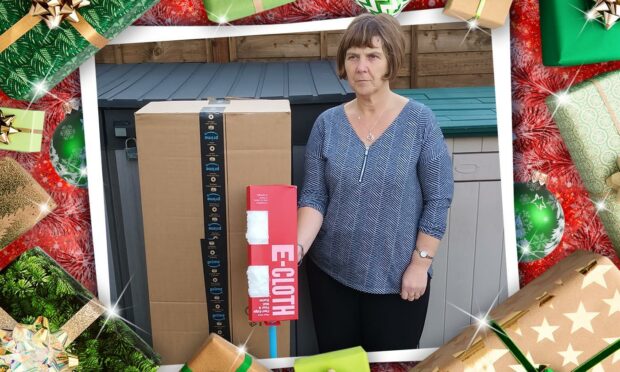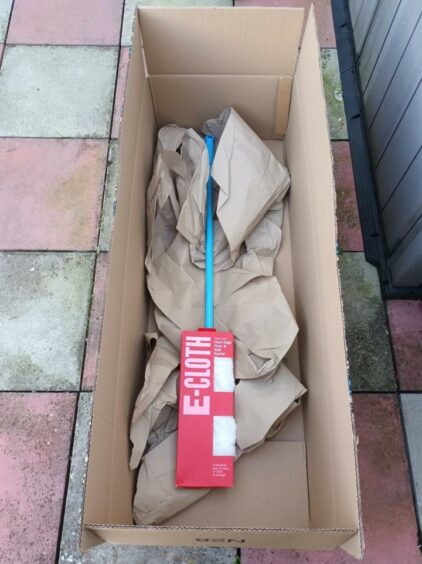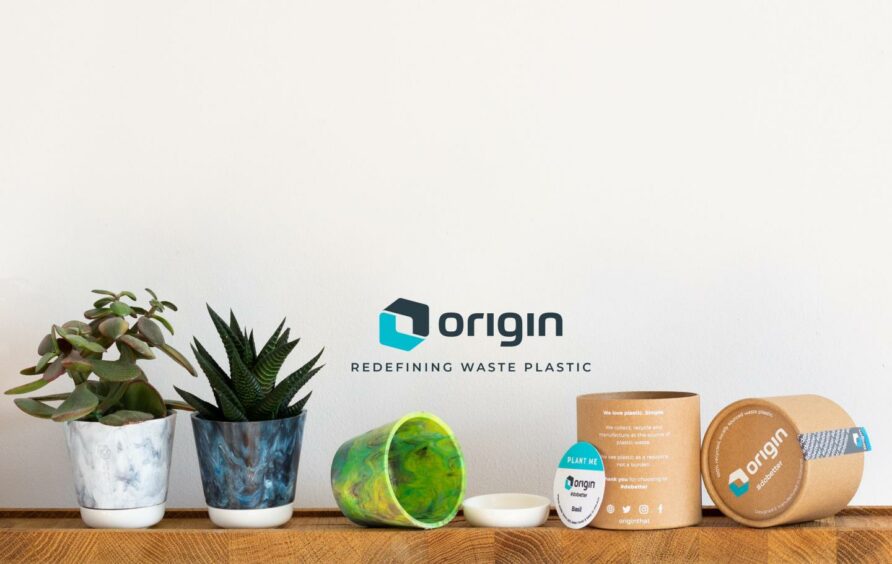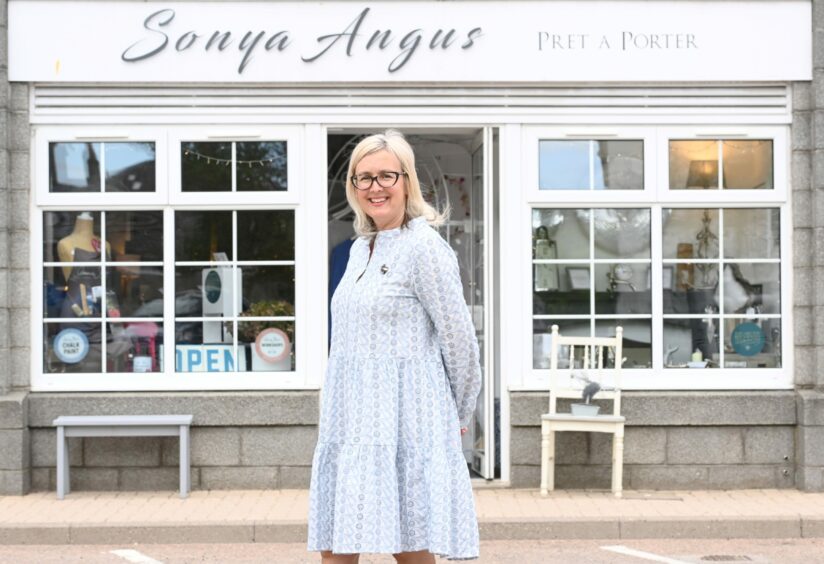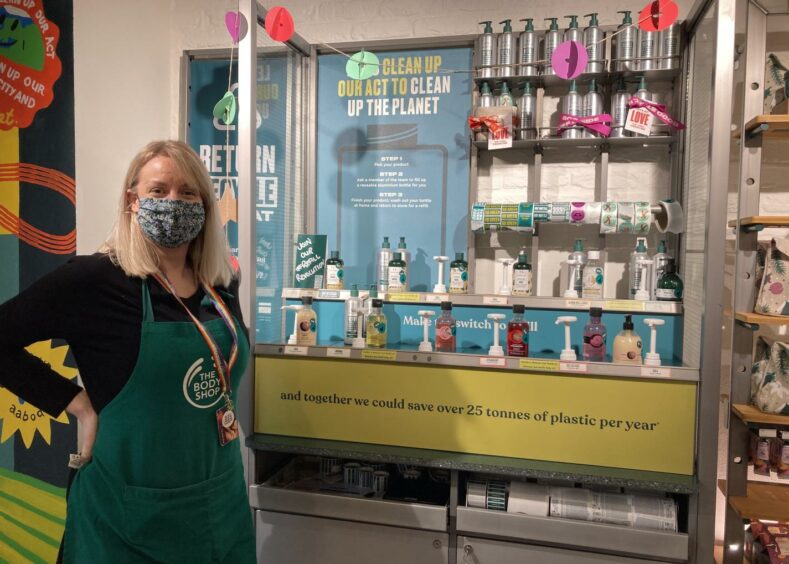There is something magical about browsing an endless world of goods online and having them delivered to your doorstep within hours.
But do you ever stop to consider the environmental impact of this convenience?
This Christmas (yes, it’s fewer than six weeks away) north-east shoppers are being urged to shop local not just to support small businesses, but also to help the planet.
‘A box of enormous proportion’
Earlier this month, Press & Journal reader Kevin Atkins sent in a photo of a delivery he recently received from an online retailer.
“My wife ordered a new mop head from Amazon,” he told us, and the following day “a box of enormous proportion” arrived on their doorstep.
Like many people, Kevin and his wife had not considered the environmental impact of online shopping until they found themselves drowning in excess packaging.
Amazon are particularly known for this “over packaging” phenomenon, where excessively large boxes are used for small items and filled with unnecessary packing peanuts and other fillers.
But a number of local businesses Aberdeen have made it their mission to do exactly the opposite.
Is bespoke packaging the answer?
Designer Daniel Sutherland is a co-founder of Origin, a firm which uses recycled plastics and ceramics to make plant pots.
“The term ‘circular economy’ is banded around a lot these days,” he said. “But when you put something in the recycling bin, you have no idea if it really does get recycled. You just have to hope.”
He explains that the true aim of a circular economy is to keep materials in use for as long as possible.
Yet our current circular models depend upon huge supply and transportation chains, leading to high levels of carbon and negative environmental impacts.
“Instead, Origin takes plastics from the local region and we make them into new things to sell back to the local economy,” Daniel said.
Unsurprisingly, packaging is important to the brand too.
Daniel and co-founder Ben Durack spent months perfecting a tight cardboard tube which is held together by a vacuum, no glue, Sellotape or foam peanuts required.
“Obviously companies which sell millions of different products can’t have bespoke packaging for every single item, but I would love to see companies like Amazon showing how they consider their packaging.
“At the moment we have no idea how they work it.”
That old idea – reuse
In Cults, Sonya Angus has gone back to basics when it comes to packaging items in her shop.
“We have a store room where I keep every single box which a product comes out of before it gets put on display,” she said.
“That way when a customer buys a product – whether it’s a mirror, an ornament or piece of furniture – they get it in the original box.”
Sonya explains that collecting packaging is something she’s always done, ever since she worked in Jenners in Edinburgh.
“At that time it wasn’t an environmental thing,” she said, “it was just handy and I loved collecting the boxes and ribbons.”
But the idea stuck.
She also offers complimentary gift wrapping with tissue paper and paper bags.
“That way people don’t have to buy yet another gift bag which comes in plastic wrap,” she says, “and it can all be reused and then recycled.”
A trip to the moon or a decent size box
Some large chains are even getting in on the act.
The Body Shop has just removed the final bit of non-recyclable packaging from its product range and has installed a large refill station for shampoos, soaps and other cosmetics.
“It’s all come full circle,” said Aberdeen store manager Eilidh Duncan.
“Back in 1976 when Anita Roddick founded The Body Shop, the whole ethos was that people would come back with their empty containers and refill all their products.
“So she was way ahead of her time.”
The Body Shop has spent millions rolling out refill stations to stores across the globe and Eilidh questions why online-only firms don’t seem to be putting in similar effort.
“The amount of money places like Amazon have for innovations…” she trails off, presumably thinking about Amazon’s owner Jeff Bezos billion dollar trip to the moon.
“It does make you wonder why they are not investing in better packaging, as its these companies who really have the biggest influence.”
